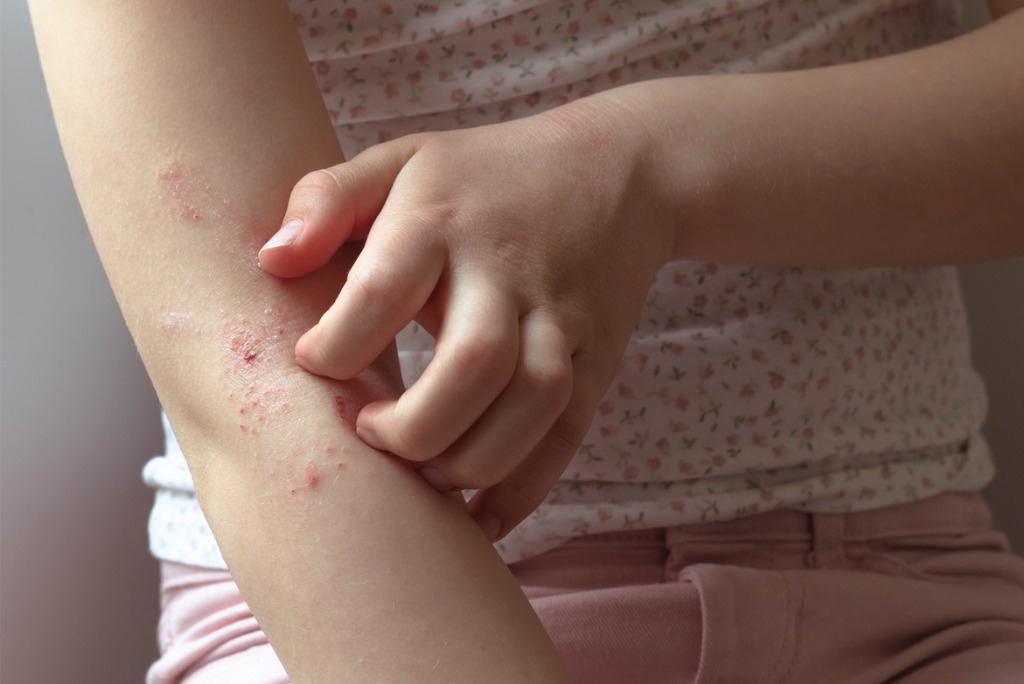Pediatric plaque psoriasis, a chronic skin condition affecting children, poses unique challenges and concerns. Characterized by raised, red patches covered with a silvery buildup of dead skin cells, this condition affects not only the physical health of young patients but also their emotional and social well-being. Understanding its triggers, identifying symptoms, exploring home remedies, and reviewing advanced medical treatments are crucial for effective management. With ongoing research and clinical trials, institutions like Olympian Clinical Research are at the forefront of finding innovative treatment options.
What is Pediatric Plaque Psoriasis?
Pediatric plaque psoriasis is a chronic autoimmune condition that significantly affects children’s skin. It’s characterized by an abnormal acceleration of the skin cell life cycle, leading to a rapid buildup of cells on the skin’s surface. This results in thick, scaly patches that are often itchy and painful. These patches present more than physical discomfort. They can also be a source of emotional distress for young patients. Understanding this condition, including its triggers, is essential for effective management and care. Common triggers include:
- Infections: Certain infections, especially those affecting the throat or skin, can act as a catalyst for psoriasis in children.
- Skin Injuries: Cuts, scrapes, bug bites, or severe sunburns can trigger the Koebner phenomenon, where new psoriasis patches appear on injured skin.
- Stress: Emotional stress is a well-known trigger for psoriasis flare-ups. Managing stress and anxiety levels can help reduce the frequency or severity of episodes.
- Medications: Some medications, including certain anti-malarial drugs, beta-blockers, and lithium, can induce or exacerbate psoriasis.
- Family History: Genetics plays a significant role. A family history of psoriasis increases the likelihood of a child developing the condition.
- Environmental Factors: Extreme weather conditions, particularly cold and dry climates, can worsen symptoms. Similarly, exposure to secondhand smoke or high pollution levels may trigger flare-ups.
- Hormonal Changes: Hormonal fluctuations, especially during puberty, can influence the severity and onset of psoriasis.
Identifying Pediatric Plaque Psoriasis
Identifying pediatric plaque psoriasis early is crucial for effective management and treatment. This condition manifests in specific ways, and recognizing its symptoms is the first step toward a proper diagnosis and care plan. Early diagnosis and treatment can significantly improve the quality of life for children with pediatric plaque psoriasis.
Dermatologists or pediatricians can provide a comprehensive treatment plan that may include topical treatments, phototherapy, or systemic medications, depending on the severity of the condition. It’s essential for parents to monitor their child’s skin regularly and consult healthcare providers when symptoms first appear or change. Common symptoms of pediatric plaque psoriasis include:
- Red, Raised Patches: One of the most noticeable signs is the development of red, raised patches on the skin. These patches are typically covered with white or silvery scales.
- Itchiness and Soreness: The affected areas often feel itchy or sore, which can be particularly distressing for young children.
- Cracking and Bleeding: In more severe cases, these patches can crack and bleed, which not only causes discomfort but also increases the risk of infection.
- Dry, Scaly Skin: Apart from the patches, there may be areas of dry, scaly skin, indicating the widespread effect of the condition.
- Thickened Nails: In some cases, children might also exhibit changes in their nails, such as thickening or pitting.
Managing Pediatric Plaque Psoriasis at Home
Effectively managing pediatric plaque psoriasis at home involves a combination of simple remedies and lifestyle adjustments. Regularly moisturizing is crucial to reduce skin dryness and itching, helping to alleviate some of the discomfort associated with the condition. Identifying and avoiding known triggers, such as stress and skin irritants, may also play a significant role in managing flare-ups. Using gentle, fragrance-free skincare products is essential to prevent further irritation of sensitive skin.
Additionally, incorporating a balanced diet, engaging in regular exercise, and ensuring adequate sleep are vital lifestyle changes. These adjustments not only support overall health but can also positively impact the severity and frequency of psoriasis symptoms in children. By integrating these practices into daily routines, parents can help their children manage the symptoms of pediatric plaque psoriasis more effectively.
Advanced Medical Treatments and Research
Treating pediatric plaque psoriasis involves personalized approaches, with topical therapies and light therapy being common initial treatments. For more severe cases, systemic medications, including newer biologics that target immune responses, are used. The effectiveness of these treatments varies, necessitating a tailored approach based on the child’s specific condition.
Ongoing clinical research, including studies conducted at Olympian Clinical Research, is essential for developing newer, more effective treatments. These trials offer access to cutting-edge therapies and contribute significantly to our understanding and management of pediatric plaque psoriasis. Participation in such research is instrumental in advancing treatment options and moving closer to potential cures, ultimately improving the lives of young patients affected by this condition.
Be Part of the Solution With Olympian Clinical Research
At Olympian Clinical Research, we believe your child can play a vital role in shaping the future of pediatric plaque psoriasis treatment. This is about more than just trying new therapies. It’s about being a part of a larger movement to deepen our understanding and improve the management of pediatric plaque psoriasis.
Participating in our clinical trial offers your child access to leading-edge psoriasis treatments without the need for insurance coverage. This provides a unique opportunity to benefit from the latest treatment advances while contributing to vital medical research. Furthermore, your child’s participation could be instrumental in bringing positive changes for other children living with this condition. Contact us today to learn more and see if your child qualifies.

Recent Comments